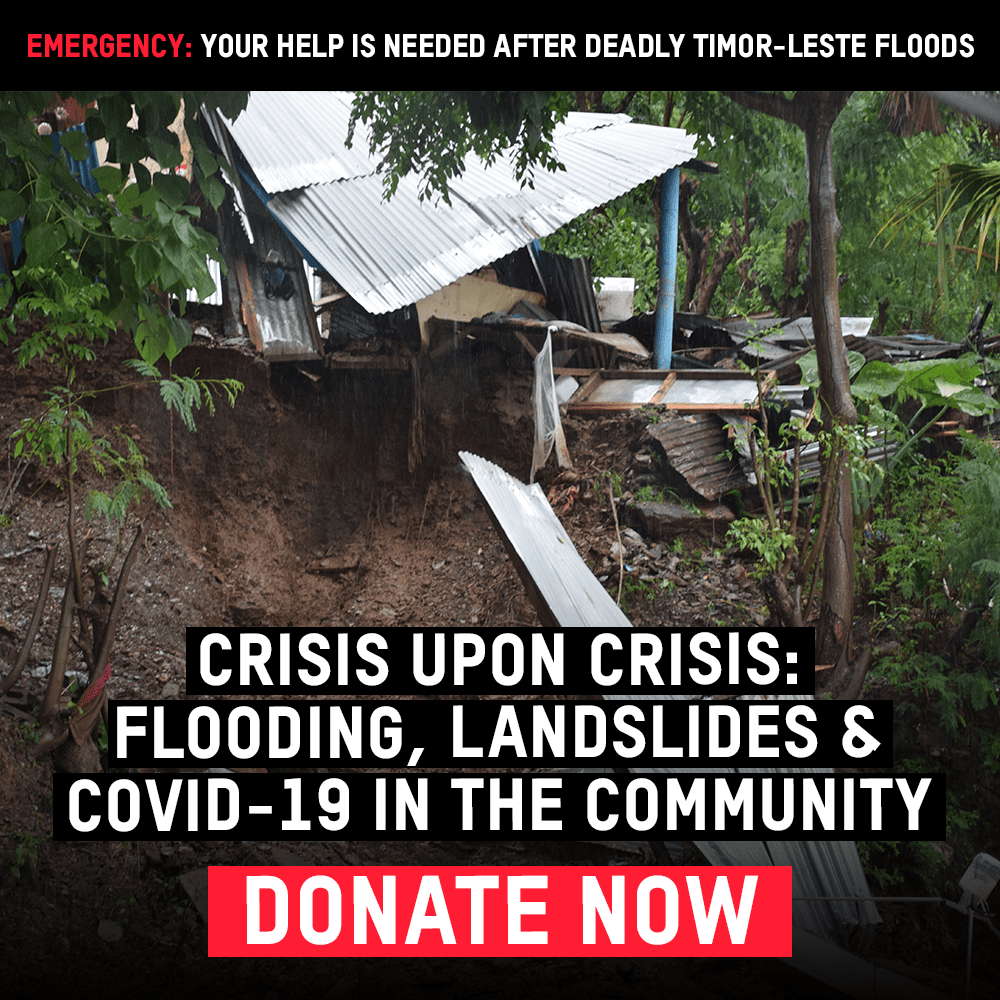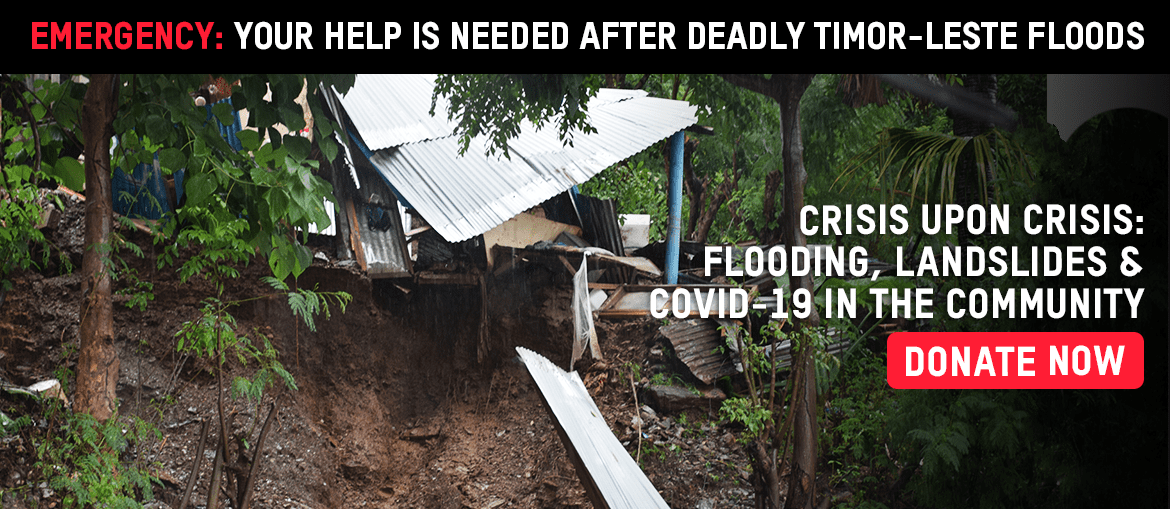Almost half of the population of Timor-Leste’s capital has been impacted by severe flooding, according to government figures, after heavy rains fell on Dili and nearby provinces last week. Cyclone Seroja took the people of Timor-Leste by surprise, with the small nation previously not within the range of such extreme weather events. Oxfam in Timor-Leste’s Associate Country Director, Annie Sloman, said the impact of climate change was undeniable.
“The combination of La Niña and climate change this year has resulted in extremely heavy rainfall, and more severe flooding than the Timorese are used to. Climate change is clearly exacerbating the intensity and impact of these disasters.”
At least 36 people were killed by the flooding and landslides caused by the rains, and 10 people remain missing. While thorough assessments are still being completed, the number of people impacted is expected to be more than 100,000, which is close to 10% of the country’s population.
“There’s been significant infrastructure damage, with a third of Dili’s water systems out. This means people don’t have access to safe drinking water, and the risk of water-borne diseases, like Dengue Fever and diarrhea, spreading is high.”
She said the growing risk of an outbreak of COVID-19 in one of the 36 evacuation centres was a major concern.
“A high proportion of those who fled to evacuation centres remain there, because people are struggling to fix and clean their homes to make them habitable.”
Ms Sloman said most of those people are women, children, people with disabilities, and the elderly.
“There are concerns about people following COVID-19 precautions: few are wearing masks, there is limited social distancing and there are challenges with accessing clean water for handwashing. The longer they stay there, the greater the risk of an outbreak among a highly vulnerable population.”
She said the impact of the emergency will be felt for a long time to come, due to the already high levels of poverty and limited access to support services.
“There is still water in some people’s homes. Not only have their possessions been ruined or damaged, but they have lost food, which was already in short supply due to COVID-19 lockdowns and supply chain problems, and people who are informal workers have lost their income.
“Timor-Leste is one of the hungriest and poorest countries in the world – people’s ability to withstand the shock and bounce back is very low. That’s why the Government is asking for support to respond.”
Historically, Oxfam New Zealand has supported Timorese farmers to prepare for and deal with the impacts of climate change on their livelihoods, and currently Oxfam supports Timorese organisations as they work to protect the rights of women, those with disabilities and the rural poor, and bolster their ability to cope with climate breakdown.
In response to these destructive floods, Oxfam is working alongside local partners and the Timorese Government to assess the full impact of the floods, as well as to distribute much-needed items to those most in need in evacuation centres, such as tarpaulins, mattresses, blankets and sanitary products. Oxfam will also distribute items such as kitchen kits and food to support people to move back into their homes.
Media Contact:
Jo Spratt | Communications and Advocacy Director | Wellington, New Zealand | [email protected] | 0210664210
Timor-Leste Emergency appeal
Your support is urgently needed for our neighbours in Timor-Leste. You can empower families in Timor-Leste to rebuild their lives after these devastating floods. Your donation can help to provide access to safe water, sanitation and hygiene at Evacuation Centres as well as improve access for people with disabilities to critical services. Your support today will ensure that this urgent life-saving work can happen.
Donate now






